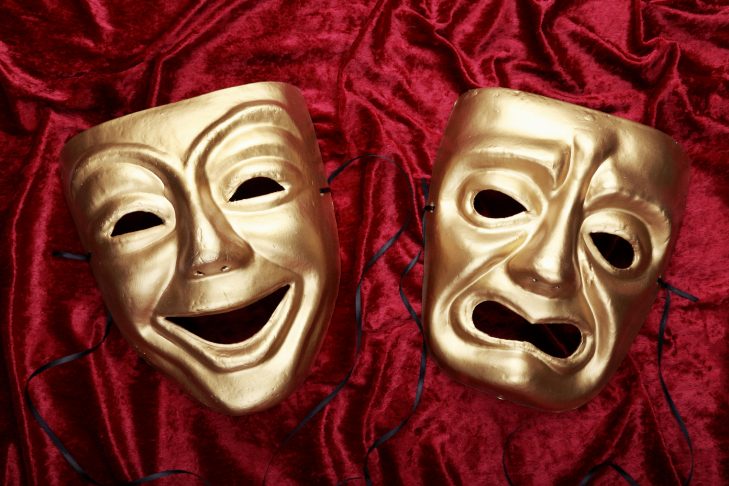As a teenager, I scoured my parents’ bookshelves for forbidden reads and stumbled upon “Joys of Jewish Humor” by Henry D. Spalding, a gift from my aunt to my father. I sequestered the book away in my room and pored over it for hours, studying the lore of Jewish humor when I should have been studying my Torah portion. The jokes read more like verses or stories, windows into a world where Judaism was the rule, not the exception. Jews were as often the victors of jokes as they were the punchline. Their stinginess was critiqued in the same breath as their intelligence was praised. The jokes were multifaceted, smart and self-deprecating, light and funny in the mouths of the people who told them. The problems arose when other mouths opened.
Being Jewish in a Christian suburb was not a lot of fun. In the years before the internet, my peers got their education through their parents and a woefully homogenous school system, which led to entrenched bias like plaque under a rotten tooth. My classmates treated me as a curiosity, my faith as a cutesy starter religion, a stepstool for Jesus. The real hate came years later, a generation of kids raised on “South Park” and Reddit spitting down in the name of satire. After all, religion was fake and caring about things was for losers. Nobody was immune to ridicule and anyone who spoke up was “censoring free speech” or “too PC.” So, my Jewish classmates and I trudged through our middle- and high-school years, an intellectual desert of Holocaust jokes and pennies. Death by a thousand papercuts.
This is not to say that jokes about Jews can’t be funny. On the contrary, Spalding compiled an entire chapter on the “Wise Men of Chelm,” the fictional town full of fools whose antics entertained Jews for centuries. The citizens of Chelm are kind-hearted Torah scholars who lack common sense. They examine the world around them in ludicrous but ultimately harmless ways, allowing us to recognize and accept our own flaws. Jewish jokes have structure, nuance and punchlines. Even if the jokes are rude or mean, the people telling them are laughing at themselves. There’s no threat of malice. However, when a non-Jew tells the same joke, the Jewish listener pauses. Even if the joker is a friend, even if the listener thinks they’d never make a joke at someone’s expense, the pause is there. Old papercuts sting and the Jewish listener realizes they can never be sure from where these words are born.
I was tired of non-Jews telling jokes by seventh grade. When a child stays on the offense for that long, they grow in the shape of a fist. I could have stayed silent and kept my head down, but something about constantly spoiling for a fight did not lend itself to passivity. Why did I have to smile and bite my tongue while my peers basked in a world hand-tailored for them, full of minorities offering infinite second chances and grinding their teeth to powder? I stopped giving the inch, stopped laughing politely.
It turned out that the “South Park” crowd couldn’t take even a teaspoon of their own garbage. The entire world was their safe space, a sandbox to craft the same unfunny jokes their parents told mine. It was so easy to throw rocks from a tower, easier still to invest in nothing and dissolve at the slightest pushback. Because at their root, anti-Semitic jokes aren’t funny. Genocide has no punchline. If Jewish people make jokes to cope with generational trauma, it does not give non-Jews license to join in. The unique experiences of Jewish people do not belong to everyone, and if that’s upsetting to non-Jews, perhaps they should examine why they feel entitled to someone else’s suffering.
Words have weight and pretending they don’t isn’t just incorrect, it’s dangerous. Asking for someone to respect your humanity and not recline luxuriously on the throne of bones their ancestors crafted out of yours isn’t “PC culture.”



